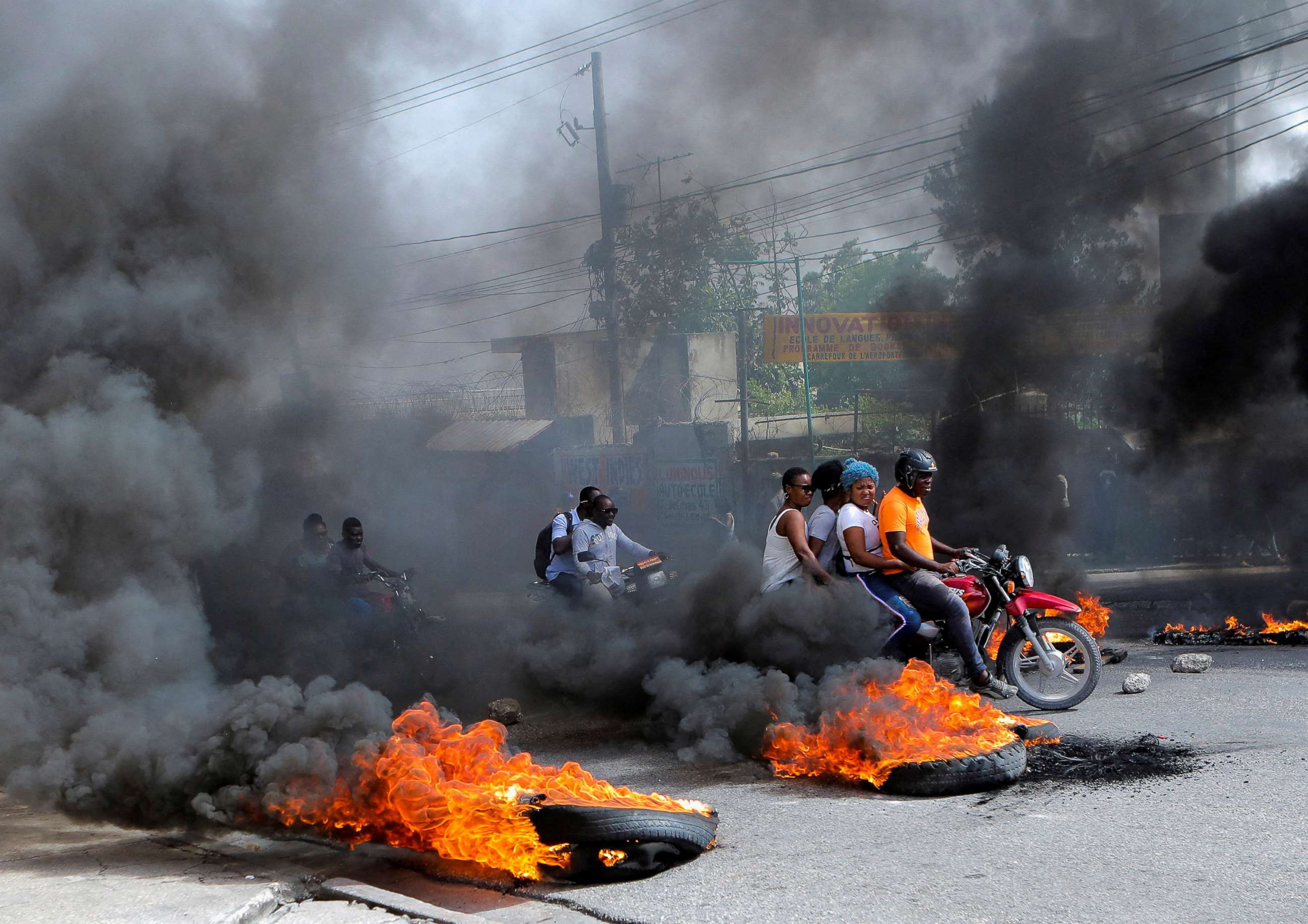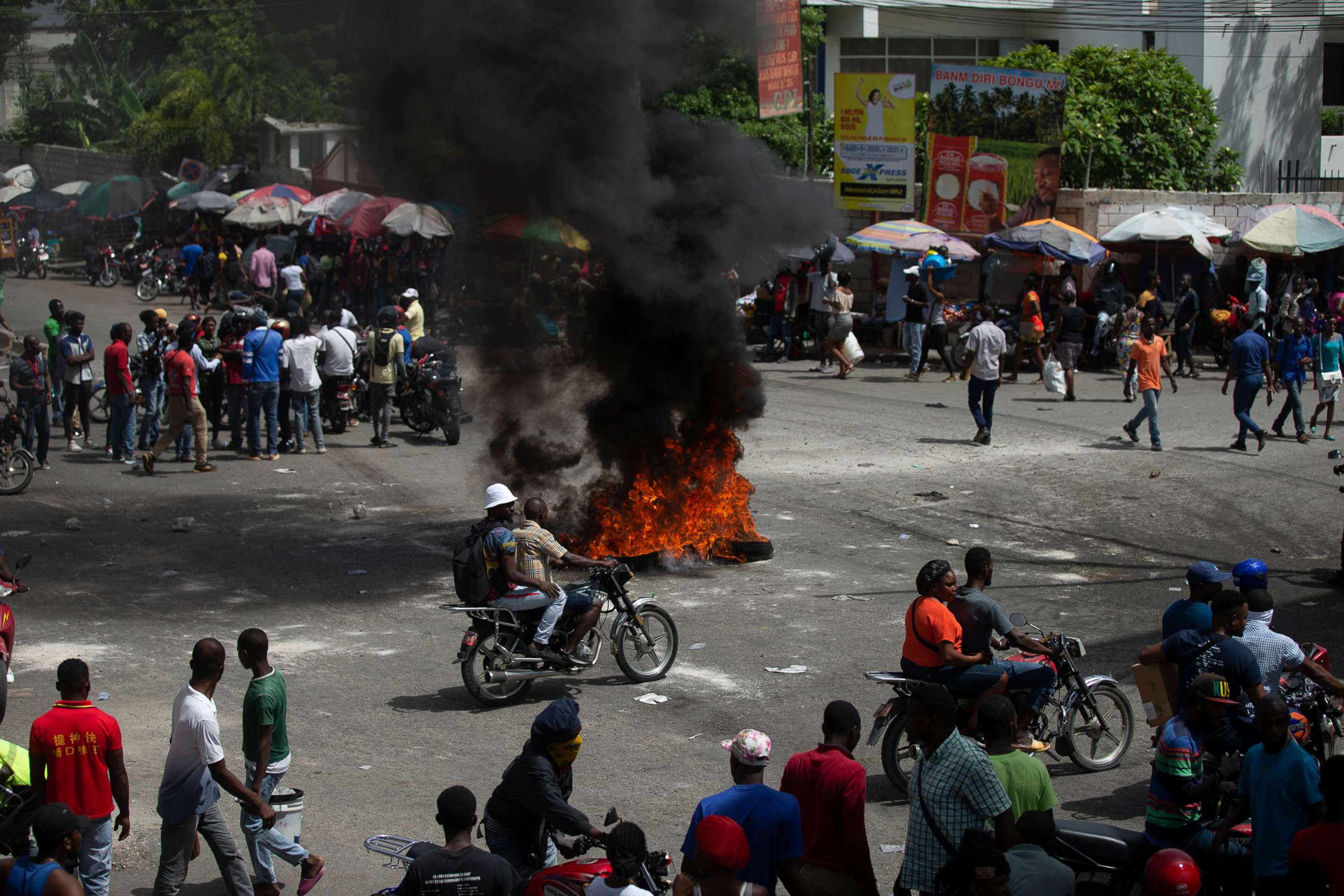Gang violence, inflation, food insecurity deepen Haiti crisis
July marked one year since Haiti's president was assassinated.
July marked one year since Haiti's president was assassinated and it appears the country's crisis has only deepened as gang activity has surged over the past months in and around the nation's capital city.
Haiti is no stranger to political turmoil, and on July 7, 2021, a dark history reemerged when the country's president, Jovenel Moïse, was assassinated by a group of gunmen at his home. The killing brought a country already experiencing violent gang violence and protests of authoritarian rule cascading further into chaos.
A little more than a month later, Haiti would be rocked by a 7.2 magnitude earthquake - killing more than 2,000 people and leaving thousands more injured. The earthquake caused devastating damage to buildings, homes, and schools particularly in rural areas where approximately 80% of the affected populations live.

According to a recent United Nations Office for the Coordination of Humanitarian Affairs (OCHA) report dated June 2, at least 188 people have been killed in Port-au-Prince, including 96 suspected gang members due to gang violence and nearly 17,000 people have been displaced since late April.
“We have encountered corpses that are decomposing or being burned,” said Medecins Sans (MSF), Doctors Without Border, in a statement this week. “They could be people killed during the clashes or people trying to leave who were shot - it is a real battlefield."
The United Nations Security Council unanimously approved a resolution Friday on a 15-0 vote that calls on all countries to stop the transfer of small arms, light weapons and ammunition to any party in crisis-torn Haiti supporting gang violence and criminal activity, the Associated Press reported.
The resolution drafted by the United States and Mexico expresses “grave concern about the extremely high levels of gang violence and other criminal activities, including kidnappings and homicides, and sexual and gender-based violence, as well as ongoing impunity for perpetrators, and the implications of Haiti’s situation in the region,” according to the Associated Press report. It also extended the "BINUH" mission in Haiti until July 15, 2023.
The immediate impact of the resolution however remains unclear. Heavily armed gangs have blocked roads throughout the north and south, stifling humanitarian assistance from reaching the most vulnerable.
In the Cité Soleil neighborhood of Port-au-Prince, malnutrition rates have increased with 20% of children under five suffering from acute malnutrition, the OCHA reported.

According to a statement this week from The United Nations World Food Programme (WFP) , "Insecurity in and around Port-au-Prince has been drastically worsening since early May, disrupting nation-wide supply chains, access to basic services like markets, schools and hospitals and livelihoods of Haitians across the country. The violence is causing a serious protection crisis and making it harder for people to access and afford food."
"This comes against the backdrop of the global food crisis where rising costs linked to the conflict in Ukraine are compounding woes. Haiti is already seeing staggering inflation to the tune of 26 percent. The island nation is particularly vulnerable to shocks in the global food and fuel markets as it imports 70 percent of its cereals. On top of these challenges, the ongoing Atlantic Hurricane season is expected to be more active than normal putting at risk lives and livelihoods of vulnerable Haitians," the WFP continued.
The road blockades have created serious security concerns for humanitarian operations.
“The only safe option for humanitarians to move is by air, and without adequate funding, UNHAS [United Nations Humanitarian Air Service],faces imminent closure by the end of July 2022. Ultimately, this puts not only WFP’s assistance but humanitarian operations across the country at risk,” said Jean-Martin Bauer, WFP Country Director in Haiti.
And as Haiti battles multiple crisis at home, it also faces potential impacts from an ongoing Atlantic Hurricane Season. The National Oceanic and Atmospheric Administration (NOAA) has forecasted an above-normal 2022 hurricane season, which runs from June through November, with three to six storms that may reach category 3, 4 or 5. Haiti seems to be facing an uncertain future ahead.




